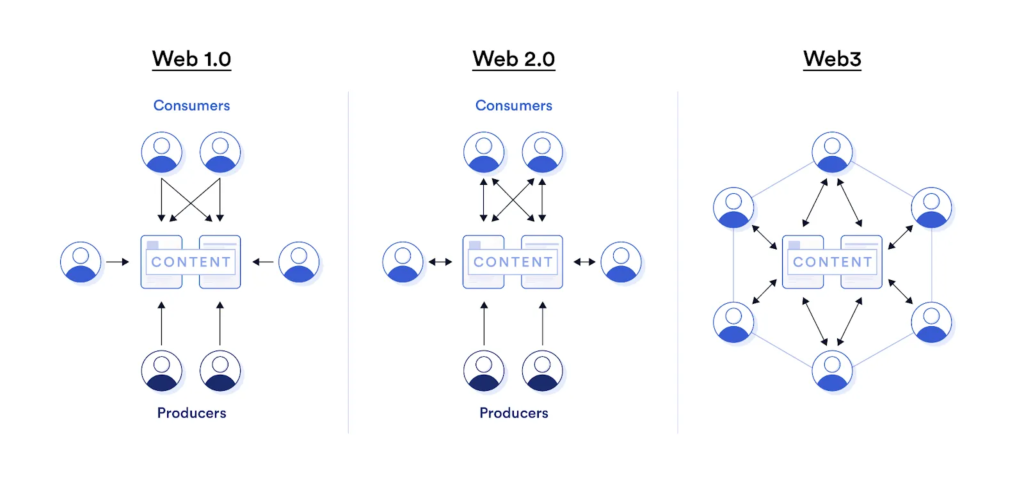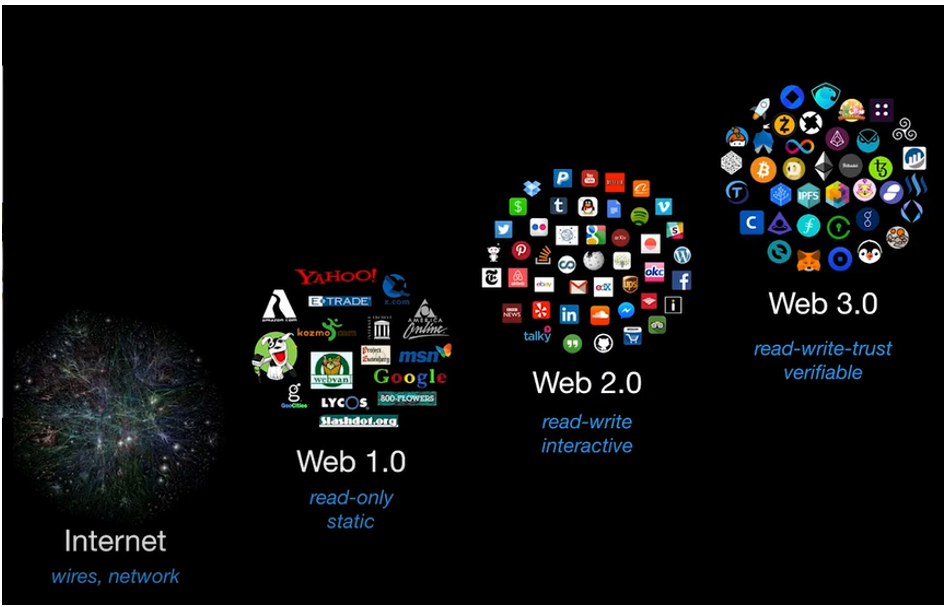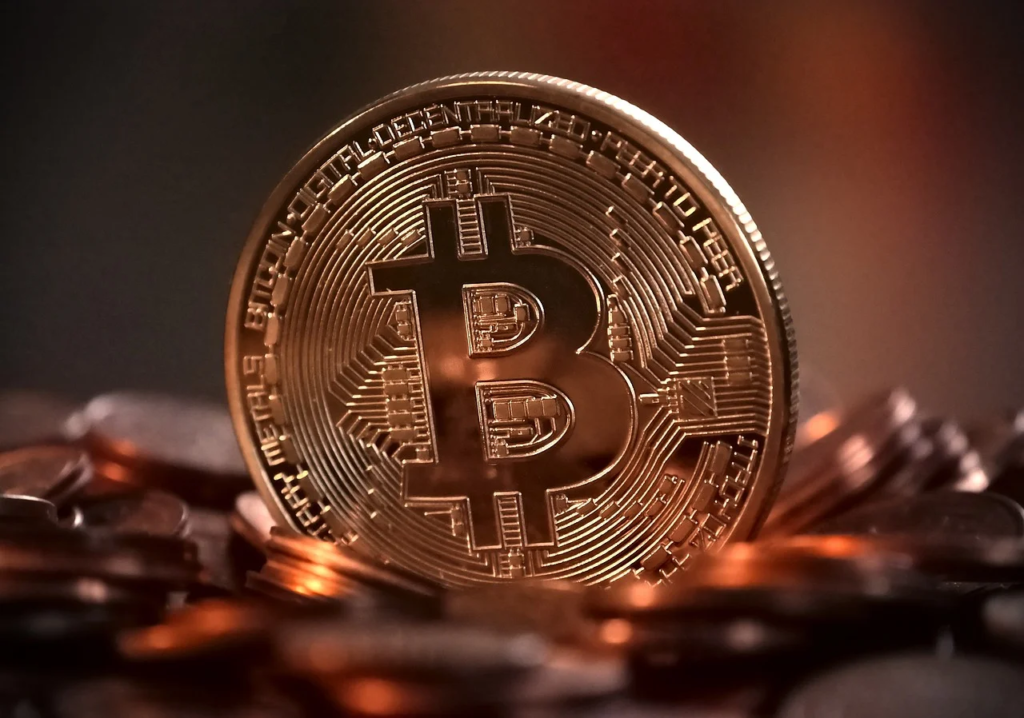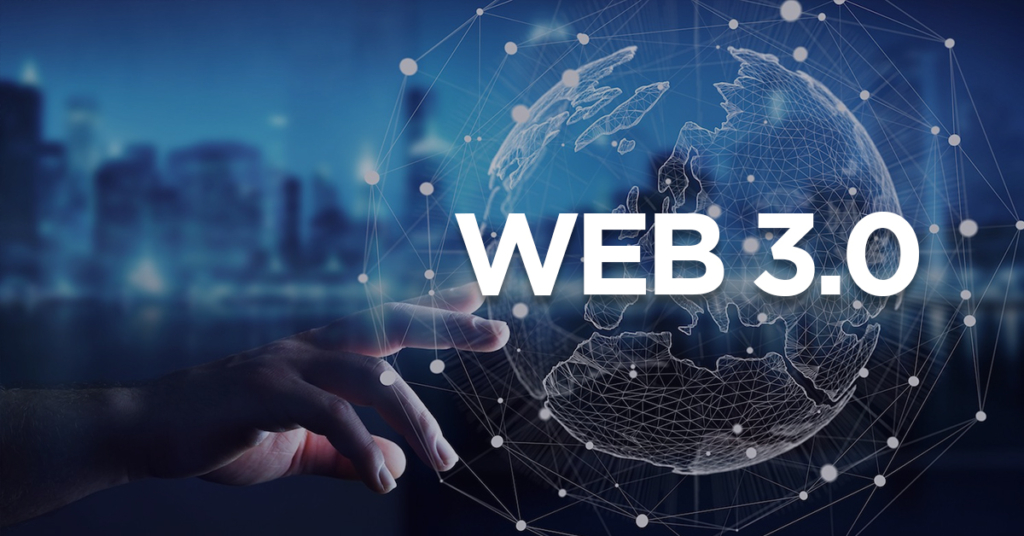The future is decentralized.
Web3—powered by blockchain, AI, and decentralized voting systems—is set to revolutionize how we govern, access information, and control our assets.
Imagine a world where voting is transparent and tamper-proof, where journalism is verified by the community, and where governments and corporations are held accountable in real time by their citizens and stakeholders.
Web3 isn’t just a buzzword; it’s a blueprint for a new era of digital sovereignty. From decentralized governance models that resemble a modern representative republic, to blockchain-based media that prevents misinformation and censorship, Web3 is flipping every power structure on its head.
This transformation will impact everything from national governance to AI-driven infrastructure, reshaping our economies, cities, and everyday lives.
Let’s dive into how this new era of Web3 will create a more transparent, fair, and autonomous world—where individuals take control, and centralized institutions are relics of the past.
Web3 and the Future of Governance
Web3’s decentralized structure fundamentally changes how governance works.

In the current model, power is concentrated at the top—whether in governments, corporations, or even media.
In Web3, governance is flipped on its head. Decisions are made by the community, using decentralized voting and consensus mechanisms to ensure transparency and fairness.
This concept can scale up to national governments.
Think about DAOs (Decentralized Autonomous Organizations), which have already implemented community-based governance models where every stakeholder gets a say.
Ethereum’s community votes on key decisions via on-chain governance using Proof of Stake (PoS) or Delegated Proof of Stake (DPoS) systems, where users vote directly or delegate their voting power to others.
In a representative republic, this Web3-enabled governance model could modernize how we run national governments:
- Direct voting on key issues: Instead of waiting for a few elected officials to vote in your favor, Web3 would allow citizens to vote directly on legislation, policy, and budget allocations using blockchain-based voting systems. Imagine if you could vote from your phone, knowing that your vote was immutable and verifiable on a blockchain.
- Delegation of votes: Similar to how DPoS works, citizens could choose to delegate their voting power to representatives they trust (just like in a republic). If a representative breaks trust, the delegation can be revoked immediately—without waiting for the next election cycle.
- Electoral College Integrity: Smart Contracts could ensure that electoral college representatives are forced to vote according to their states election results.
The concept of protecting the country from being dominated by far-left big city citizens at the national level, while allowing direct democracy on local issues can be protected and improved upon with Web3.
This model brings accountability and transparency back to government, ensuring that representatives truly represent the interests of their constituents.
The Governance Model: Consensus, Trust, and Fairness
Web3 governance isn’t just about voting on-chain—it’s about ensuring that decisions are fair and transparent. With Proof of Work (PoW) and Proof of Stake (PoS) consensus mechanisms, blockchain platforms ensure that the rules are enforced without bias.

In traditional systems, governance often falls prey to corruption, lobbying, and backdoor deals. But with blockchain, every decision is recorded on a public ledger for everyone to see, making it impossible to manipulate results or fudge numbers.
This kind of transparency could be applied in real-world governance:
- Town hall voting: Cities and towns could implement blockchain-based voting on local decisions, from new infrastructure projects to tax policies. Everyone would have a say, and every vote would be counted and verified on the blockchain.
- Corporate governance: Companies could adopt Web3 voting systems where every shareholder has a direct say in decision-making, eliminating the need for centralized boards. This could lead to more transparent, fair corporate governance.
- Transparency: Blockchain based decisions are immutable. The public could finally see who the real voters are in corporate governance issues. Companies like BlackRock and public pensions would finally be seen in the full light of day.
By making consensus mechanisms accessible to governments, corporations, and communities, Web3 ensures that everyone gets a voice, and decisions are made based on collective agreement, not on hidden influences.
Journalism and Fighting Disinformation
One of the most critical applications of Web3 is in the world of journalism.
We live in a world where fake news, clickbait, and out-of-context quotes can shape the narrative. But decentralized media platforms on Web3 offer a powerful solution.

- Immutable records: Once an article or video is uploaded to the blockchain, it can’t be tampered with. This means quotes can’t be taken out of context, and readers can always verify the original source of the information.
- Decentralized fact-checking: Instead of centralized platforms deciding what’s true and what isn’t, the community could fact-check articles via a token-based incentive system. If a piece is verified as accurate by a large number of users, it’s rewarded; if it’s deemed inaccurate, it’s flagged for further review.
Imagine a news platform where journalists are rewarded for accuracy, rather than clickbait. Blockchain-based rewards systems could shift the focus from ad revenue to truthful, transparent journalism.
Voting and Representation in Web3 Governance
DAOs and decentralized voting systems in Web3 provide a blueprint for how national governance could evolve.
Today’s representative republics often see representatives disconnected from the people they serve, driven by special interests or lobbyists.
Web3 offers a way to realign governance with the will of the people.
In this model:
- Every citizen could directly vote on major policy issues, eliminating the filter of a middleman like a politician. Blockchain ensures each vote is counted accurately and transparently, reducing fraud.
- Citizens who don’t want to vote on every issue could delegate their voting power to a trusted representative, with the ability to revoke that power at any time if they feel unrepresented.
National governments could be decentralized, where checks and balances are baked into the code itself, making corruption & money laundering virtually impossible. And funding for government projects is controlled by smart contracts, ending frivolous government spending.
This system mirrors the ideals of democratic republics, but takes them further—by giving individuals more power and removing the need for centralized institutions that are prone to corruption.
AI and Blockchain: Powering Future Governance and Infrastructure
Adding AI to this mix would take Web3 governance to the next level.
AI could help with real-time decision-making, analyzing massive amounts of data and helping communities make data-driven decisions. For example, AI could help:
- Optimize energy usage in cities by automatically reallocating resources based on blockchain data from smart contracts.
- Manage self-driving cars on blockchain-powered transportation systems, ensuring that traffic flows smoothly and autonomous vehicles communicate with one another securely.
This would lead to autonomous cities, where AI and blockchain govern essential services like energy, transportation, and even law enforcement.
These systems would be decentralized, transparent, and controlled by the community rather than by corporations or governments.
NFTs, Identity, and Data Ownership
NFTs are evolving beyond digital art into the realm of identity management.
In a Web3-enabled world, you could control your digital identity on the blockchain:
- Your healthcare records, education certificates, and even personal data could all be stored securely as NFTs, which you control. No more relying on third parties like Facebook or Google to manage your data. You would choose who has access to what, and revoke it when needed.
This will be especially important in a future where AI-powered robots and self-driving cars interact with your data.
Blockchain ensures privacy and security, while AI helps make sense of it all, creating self-sovereign systems where individuals, not institutions, control their information.
Decentralized Power Grid and Passive Income
One of the most exciting real-world use cases for Web3 is its application in renewable energy markets.
Through blockchain, individuals can monetize excess energy from solar panels or wind turbines by selling it back to the grid or to crypto miners.

Imagine if your spare electricity could generate passive income in the form of crypto rewards—without going through a traditional energy company.
This model of tokenized energy markets could revolutionize how we generate and share power:
- Microgrids could allow neighborhoods to trade energy among themselves, using smart contracts on the blockchain to ensure transparency and fair pricing.
- Excess energy from solar panels, wind turbines, or electric vehicles could be tokenized and sold on decentralized exchanges, creating a new form of income.
Web3: The Road Ahead
Web3 isn’t just a technology—it’s a philosophy of decentralization, sovereignty, and transparency.
Whether it’s transforming how we govern nations, fight disinformation in journalism, or manage our personal data, Web3 has the potential to put power back into the hands of individuals.
In a Web3-enabled future:
- Governments will be more transparent, accountable, and responsive to the people they serve.
- Journalism will prioritize truth over sensationalism, with immutable records and decentralized fact-checking.

- AI and blockchain will power everything from self-driving cars to autonomous cities, where decisions are made based on real-time data and community consensus.
- Individuals will own their identity, control their data, and earn passive income from renewable energy sources and decentralized financial systems.
The road ahead is decentralized, autonomous, and transparent. Web3 is the foundation for a future that empowers people, not institutions. We’re on the cusp of a new digital revolution, one where individual sovereignty reigns and the highest ideals of our republic can thrive.



